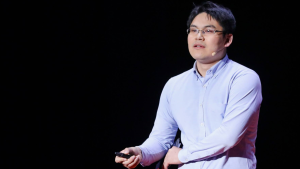Why Do Today’s Chinese Still Revere Mao Zedong?
September 9 marks the 48th anniversary of Mao Zedong’spassing. As the founding leader of the People’s Republic of China, Mao may have passed nearly half a century ago, but his influence remains deeply ingrained in the country’s collective memory.
On this day, a wide range of high-profile accounts in Chinese social media like Weibo post commemorative messages, with users actively engaging through comments to honor Mao in their own ways.
Based on the trending articles and posts across those social media platforms, we now provide you a snapshot of how Chinese netizens remembered Mao Zedong on this day.
On Guancha.cn, China’s largest political news website, the account @新潮沉思录posted an article in the community section titled The Chinese People Will Never Bid Farewell to Mao Zedong. Below are some excerpts:
“Mao Zedong’s influence cannot be simply defined by the achievements he made during his lifetime. Despite the significant changes in China’s conditions since the founding of the country, China continues to according to the fundamental principles he proved to be correct. Even those who, subjectively, are unwilling to accept or who outright oppose Mao still sometimes need to adhere to these principles in order to achieve success. It could even be said that, to this day, embracing Mao Zedong remains a fundamental prerequisite for any political or social advocacy to be viable in China.”
“Among these principles, perhaps the most well-known is the principle of “seeking truth from facts.” In today’s context, it continues to remind the Chinese people to solve problems and strive for continuous progress, rather than merely maintaining the status quo or settling for what is merely adequate.”
Another account, @平原公子, a personal media with over a million followers across all platforms, noted in his article: “Mao Zedong led the troops north to confront the U.S. army, forcing the world’s most powerful military to sign a ceasefire. He strove to develop China’s industry, enabling the country to defend itself independently and freeing it from external threats. He promoted education, built water conservancy projects, eradicated infectious diseases, and put an end to gambling and prostitution, ensuring that everyone could earn a living and regain their dignity.”
 On July 27, 1953, the signing ceremony of the Korean Armistice Agreement was held at Panmunjom.
On July 27, 1953, the signing ceremony of the Korean Armistice Agreement was held at Panmunjom.
In terms of how Mao Zedong influenced today’s Chinese people, the article adds that “Mao taught us many things. For example, he said that the essence of politics is to make more friends and fewer enemies, emphasizing that we should unite the majority and defeat the main adversary, rather than making enemies everywhere. Additionally, he reminded people not to blindly rely on other countries, as the success of a nation’s cause depends entirely on its own strength and capabilities. “
Other excerpts from this article are as follows:
“Mao Zedong encouraged people to study and read, but he also noted that believing everything in books is worse than reading no books at all. He made a vivid analogy, stating that blindly reading without understanding or applying what is learned is worse than slaughtering pigs—because pigs can run, squeal, and resist, while books simply lie there, offering nothing if the reader does not engage in critical thinking and practice.”
“He particularly liked young people and had great expectations for them. One of his most frequently quoted sayings was: ‘You young people are full of energy and vitality, like the sun at eight or nine in the morning. The hope of the future rests on you…’”
 Mao Zedong with children
Mao Zedong with children
On Weibo (often referred to as China’s version of X), one of the country’s largest social media platforms, the account @金靴Redboy, with 698,000 followers, posted a lengthy article on September 9, sharing more details about Mao Zedong’s life.
“On August 3, 1965, Mao Zedong met with André Malraux, France’s Minister of Cultural Affairs. Malraux asked, ‘I believe that before you, no one had ever successfully led a peasant revolution. How did you inspire them?’ Mao replied, ‘The answer is simple. We ate the same food as them, wore the same clothes, and made them feel that we were not a privileged class. We also ensured they had land through land reforms.’”
 Mao Zedong talking with farmers in Yan’an in 1939
Mao Zedong talking with farmers in Yan’an in 1939
@飞象网项立刚, an account with 1.6 million followers on Weibo, shared some of Mao Zedong’s contribution to China in his commemorative post:
“After the Reform and Opening-up, China’s economy developed rapidly. However, the fundamental reason for this development is not the Reform and Opening-up itself, but the foundation laid during the Mao Zedong era.”
“Under Mao’s leadership, China completed land reform, preventing land resources from being concentrated in the hands of a few landlords. As a result, land could be centrally managed, and farmers were given land to sustain themselves, greatly reducing internal instability. Without land reform, many farmers would have been left without land, living on the brink of survival, and likely would have resorted to desperate measures, leading to social unrest.”
“China also simplified its written language and launched mass literacy campaigns, significantly improving the overall quality of its population. The country built a modern industrial system, which provided the capacity for production and manufacturing. Additionally, China greatly liberated women’s rights, allowing hundreds of millions of women to join the workforce. Women gained their own names, no longer adopting their husbands’ surnames, and were given the right to education. This not only contributed hundreds of millions of laborers to society but also created a vast market.”
Under these posts, Chinese netizens left comments, honoring Mao in their own ways. We’ve gathered several of the most-liked comments for you:
@_董某人_ (600 likes):
“Yesterday, I saw so many flowers left by netizens at the original site of the school he founded, and it really hit me hard. The older I get, the more I find myself admiring him. Back in high school, I didn’t know much about him and even argued with my dad after reading some article that smeared him. But now, I realize my dad was right all along.”
@动漫之贾(401likes):
“Paid my respects to Chairman Mao today. Made a special trip to Beijing just for this and finally came out of the memorial hall. The number of people there to honor him was unreal! Got off the subway at 9:30 a.m., started lining up, and didn’t make it into the hall until around 11:15. Everyone was bowing when they saw his statue and remains. If he could see the happy lives we’re living now, I bet his smile would be even brighter than the one on his statue!”
@热爱生活追求理想(201likes):
“Without Chairman Mao’s far-sighted vision in the early decades after the founding of the People’s Republic, we wouldn’t have the foundation we rely on today! His unmatched contributions, selfless spirit, and bright wisdom will always live on in our hearts!”
@胡不归_n (171likes):
“When we mess up today, we should think about how Chairman Mao would’ve handled the same situation. He definitely would’ve worked hard to fix it, not just give up and do nothing.”
 Screenshot of Chinese netizens’ comments
Screenshot of Chinese netizens’ comments
@水月PM:
“He took a disorganized, confused old army and turned it into a disciplined, determined people’s army. He rebuilt a broken, devastated China into an independent, self-reliant People’s Republic with a complete industrial system. He left behind the rich legacy of adapting Marxism to China’s reality, a collection of passionate poetry, and the strength and backbone that allows the Chinese nation to stand tall on the world stage.”
@观静:
“Before him, China was like a rundown house where anyone could kick down the door and take what they wanted. After him, China became a dragon, and every move it makes shakes the world. I still can’t get over the image of him meeting Khrushchev while swimming.”
@下阳游民:
“There has never been a second person in Chinese history who achieved such dazzling accomplishments during their lifetime. In my view, his passing was more like a final demonstration of the materialist truth he once expressed in his own words: everyone must die, but the meaning of one’s death varies.”
@实心坦克:
“When I was younger, hearing people call him the ‘Red Sun’ or ‘Guiding Light’ felt so over-the-top and honestly kind of cringey. But now, as I’m nearing fifty and have more life experience, I realize just how spot-on those descriptions really are.”
@starchart:
“My parents, as children of workers and peasants, never once spoke a bad word about him. Today marks the anniversary of his passing, and I’ll always remember him.”
Editor: Li Jingyi



